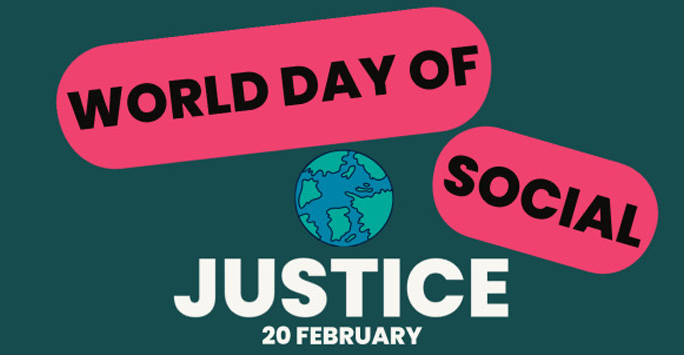
On February 20th of every year, the United Nations World Day of Social Justice is celebrated. This year’s theme focuses on strengthening global solidarity and re-building trust in government by 'Overcoming Barriers and Unleashing Opportunities for Social Justice'.
Fairness and equality aren’t guaranteed, and the World Day of Social Justice reminds us of the need to promote social justice and break down barriers based on gender, age, colour, ethnicity, religion, culture, or disability.
At the School of Law and Social Justice our experts in Law, Sociology, Social Policy and Criminology are committed to exploring the impact of law in society, challenging injustice and promoting equality of opportunity.
As we celebrate this day, we want to share with you highlights of some of the key social justice works that we have recently undertaken and been involved.
UN Special Rapporteur on Russia
Professor in Human Rights Law Kanstantsin Dzehtsiarou, is one of three shortlisted candidates being proposed to be the UN Special Rapporteur on the situation of human rights in the Russian Federation.
This historic resolution outlines grave concerns over the increase in the mass arbitrary arrest, detention and harassment of Russian civilians, including peaceful protesters, political opponents, civil society representatives, human rights defenders, journalists and minority groups.
Lives on Hold: Our Stories Told
University of Liverpool Head of Law Professor Helen Stalford, is the principle investigator of the ESRC-funded research project, Lives on Hold: Our Stories Told. Research from the project offers important first-hand insights into the significant difficulties faced by young people in navigating the asylum system and in accessing vital legal, health, education and social care support.
The study explores how asylum seekers aged 16-25, and lawyers, social workers, charities, and support organisations, are responding to the delays and disruption in front line services. The findings suggest legal, policy, and practice proposals to promote their rights and wellbeing.
Find out more about the Lives on Hold research project.
Criminal Synergies: People Smuggling and the Organ Trade in North Africa
The ‘Criminal Synergies’ research project is coordinated by Senior Lecturer in Law Dr Seán Columb and funded by the British Academy (UK). It explores migrant routes into and out of North Africa and its extra-legal service industry in a bid to increase awareness of the structural inequalities and policy decisions that render people vulnerable to exploitation in illicit markets.
In assessing the social and legal impact of EU strategies in managing and containing migrant populations in North Africa, from contrasting perspectives of key stakeholders (e.g. people smugglers, refugees, organ sellers, organ brokers, law enforcement) the research will provide insight to the nature and extent of people smuggling and its relationship with the organ trade, as well as other illicit markets (e.g. arms trade, sex trade).
Discover more about the Criminal Synergies research project.
The Social Dimensions of Frailty in Older Age
Professor Susan Pickard is a Principle Investigator on UKRI Economic and Social Research Council (ESRC) funded project ‘Frailty and Ethnicity’.
Research will explore the relationship between ethnicity and the experience of frailty in old age. The breadth of themes explored include specific contemporary ageing risks for groups, as well as those associated with place, social networks, employment, and access to skills/education across the life course and into old age, which will in turn be shaped by experiences of immigration, diaspora, racism, socio-economic inequality and generational culture change.
Find out more the Frailty and Ethnicity research Project.
Shaping the Future of Children's Rights
The European Children’s Rights Unit is committed to strengthening the field of children’s rights by fostering the development of novel methods and approaches to the study of childhood, and to further the consolidation of theoretical methods, and of the consistent and systematic use of theory in children’s rights practice.